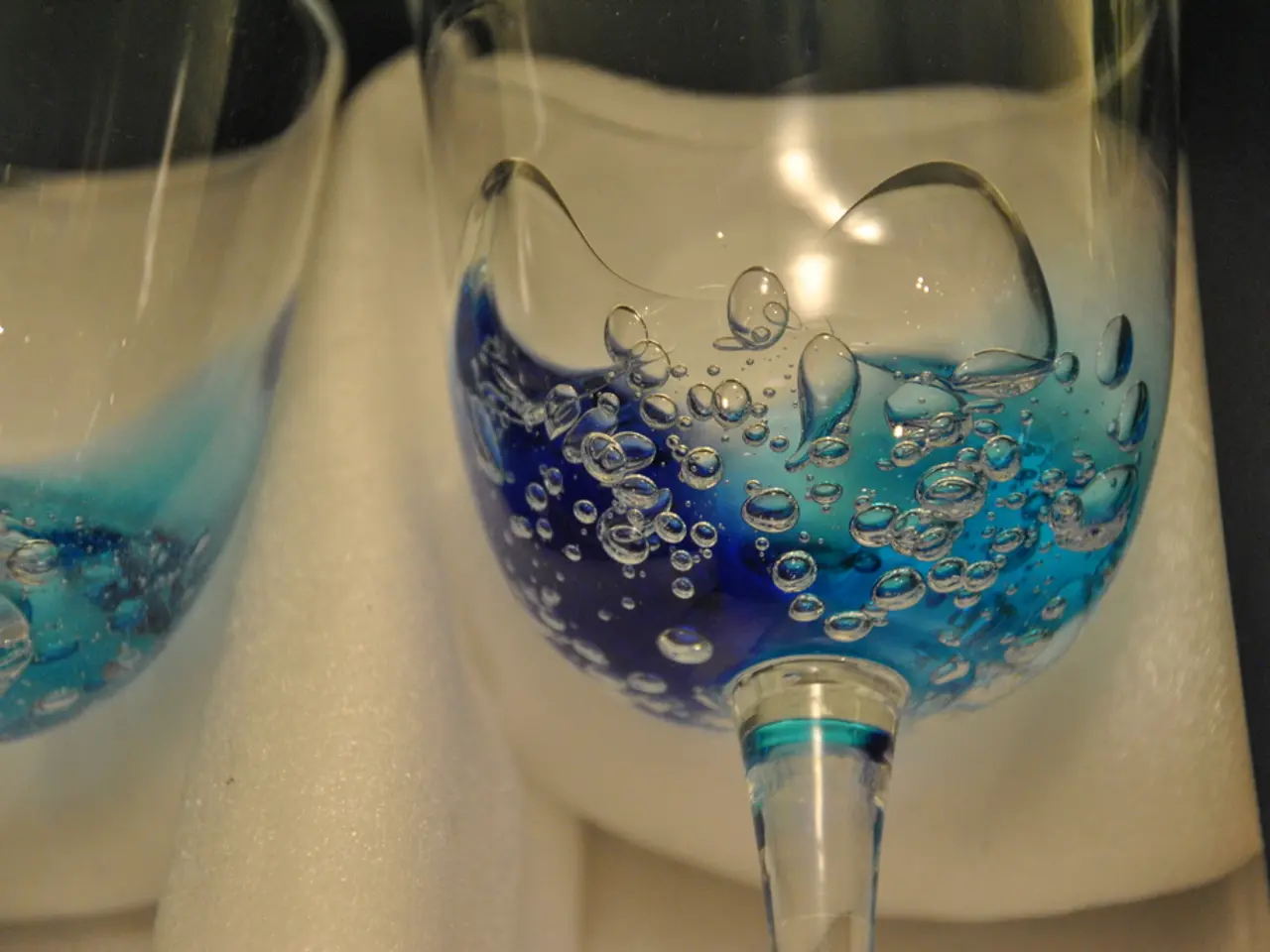Macular Degeneration Comparison: Symptoms, Causes, and Further Details
As researchers delve into the use of stem cells to replace the cells in the retina affected by dry AMD, it's crucial to focus on preventative measures and treatment options currently available.
Dietary Supplements and Specific Nutrients
The Age-Related Eye Disease Study (AREDS) formulation has been proven to reduce the risk of AMD progression. The recommended daily amounts are:
- Vitamin C: 500 mg
- Vitamin E: 400 IU
- Beta-carotene (note: smokers should avoid beta-carotene due to lung cancer risk): 15 mg
- Zinc (zinc oxide): 80 mg
- Copper (cupric oxide): 2 mg
The AREDS2 trial further tested modifications replacing beta-carotene with lutein and zeaxanthin and adding omega-3 fatty acids (DHA and EPA). These changes may provide additional benefits in reducing AMD progression risk.
Carotenoids, Vitamin A, and Omega-3 Fatty Acids
- Lutein and zeaxanthin, found in leafy greens and colorful vegetables, and astaxanthin may help protect the retina from oxidative damage associated with AMD.
- Vitamin A, found in carrots, bell peppers, and spinach, supports eye health.
- DHA and EPA have been investigated for their potential role in slowing AMD progression, though evidence is not conclusive.
Dietary Recommendations
- Consume 5-9 servings of fruits and vegetables daily, emphasizing those rich in antioxidants (vitamins C and E, carotenoids).
- Reduce intake of processed foods which may contribute to inflammation and oxidative stress.
Lifestyle Modifications
- Avoid smoking, as it increases the risk and progression of AMD and may interact adversely with some supplements.
- Regular eye exams and monitoring if diagnosed with early AMD.
Limitations and Notes
While antioxidant supplements reduce progression risk in AMD patients, current evidence does not strongly support vitamin C or other antioxidants alone as effective primary preventatives in people without AMD. Also, omega-3 supplementation results are inconclusive, and dietary intake of nutrients is preferable to isolated high-dose supplements.
Diagnostic Tests for AMD
- Optical Coherence Tomography (OCT) is the medical test for diagnosing AMD.
- Another diagnostic test for AMD is fundus fluorescein angiography (FFA).
Preventative Measures and Treatment Advances
- Quitting smoking can help prevent AMD.
- In 2023, the FDA approved two new injectable medications (pegcetacoplan and avacincaptad pegol) to treat dry AMD.
By maintaining a healthy lifestyle and having regular eye exams, people with AMD can maximize their quality of life for years to come.
- The use of stem cells in the retina, aimed at replacing affected cells in dry AMD, is one area of focus in scientific research.
- Preventative measures and treatment options are crucial to combat the progression of AMD.
- The Age-Related Eye Disease Study (AREDS) formulation, proven to reduce AMD progression risk, includes specified amounts of Vitamin C, Vitamin E, Beta-carotene, Zinc, and Copper.
- Smokers should avoid beta-carotene due to its lung cancer risk.
- The AREDS2 trial introduced changes in the formula, replacing beta-carotene with lutein and zeaxanthin and adding omega-3 fatty acids (DHA and EPA).
- Lutein and zeaxanthin may offer retinal protection against oxidative damage associated with AMD.
- Astaxanthin, found in certain algae and seafood, also provides potential protection against AMD.
- Vitamin A, abundant in carrots, bell peppers, and spinach, supports overall eye health.
- DHA and EPA, omega-3 fatty acids, are under investigation for their role in slowing AMD progression.
- A balanced diet rich in fruits and vegetables, especially those loaded with antioxidants, can help mitigate the risk factors of AMD.
- Consuming 5-9 servings of fruits and vegetables each day is recommended.
- Lowering processed food consumption and maintaining a well-rounded diet is essential for managing inflammation and oxidative stress.
- Smoking should be avoided as it boosts the risk and rate of AMD progression and interferes with some supplements.
- Regular eye exams are essential, particularly if AMD is already present.
- While antioxidant supplements may slow the progression of AMD in patients, they are not considered strong primary preventatives for individuals without AMD.
- The role of omega-3 supplementation in preventing AMR remains inconclusive.
- A nutrient-rich diet is more beneficial than relying on high-dose supplements.
- Optical Coherence Tomography (OCT) is the medical test used to diagnose AMD.
- Fundus fluorescein angiography (FFA) is another diagnostic tool for AMD.
- Quitting smoking can help prevent the onset of AMD in the first place.
- In 2023, the FDA approved two new injectable medications (pegcetacoplan and avacincaptad pegol) to treat dry AMD.
- Ensuring eye health is crucial for maintaining overall wellness and health and wellness in the workplace is equally important.
- Well-managed chronic diseases, such as AMD, can help improve mental, men's, and women's health.
- Mental health and skin care are vital components of overall health and wellness.
- Fitness and exercise, as well as proper nutrition, contribute to health and wellness, cardiovascular health, and reducing the risks of other chronic diseases.
- Autoimmune disorders and respiratory and digestive health conditions should also be addressed for a comprehensive approach to wellness.
- Environmentally-friendly manufacturing processes and energy conservation efforts can benefit both our health and the environment.
- Hearing health is equally important and should be a factor in health and wellness discussions.
- In a rapidly evolving industry, Medicare, CBD, and other therapies and treatments are growing areas of interest for aging populations.
- Researchers are exploring the relationships between neurological disorders, climate change, and space and astronomy.
- As financial management and budgeting skills become increasingly valuable in an era of entrepreneurship, venture capital, small businesses, personal finance, and real estate, taking control of our financial future remains essential for our overall well-being.




